
IIPT Announces its Community Tourism Projects & Events Distribution Channel
The International Institute for Peace through Tourism (IIPT) in collaboration with Countrystyle/Villages as Businesses (VAB) announces the Community Tourism Projects & Events Distribution Channel for the 2018 IIPT Year of Community Tourism and Peace.
This project is being launched by IIPT Founder/President Louis D’Amore and IIPT Caribbean President Diana McIntyre-Pike as part of the 40th anniversary celebration of Community Tourism which was pioneered in Jamaica. Countrystyle/VAB Founder and President, Diana McIntyre-Pike is also the Coordinator of the IIPT International Community Tourism Network.
The Community Tourism Projects & Events Distribution Channel is a clearinghouse for international community tourism projects and events for 2018. The vision is to create a distribution portal, a ‘One Voice’ approach, for marketing community tourism internationally and showcasing its local and global impact. Countries around the world will be able to share their upcoming community events and learn about projects in which they can participate. The approach also aims to encourage support from funding agencies, non-government organizations, international organizations, potential investors and Diasporas.
Access to the Community Tourism Projects & Events Distribution Channel will provide information for visitors who desire to support community projects, such as Pick a Project or Adopt a Village, while on vacation.
The Community Tourism Projects & Events Distribution Channel is being designed by Theo Chambers, Webmaster and Chief Solutions Consultant for PanaCarib Business Solutions and PR Agency, Jamaica. The Projects and Events Distribution Channel will be linked to www.AccessCommunityTourism.com
For more information, contact Diana McIntyre-Pike via email at [email protected] or +1-876-507-6326
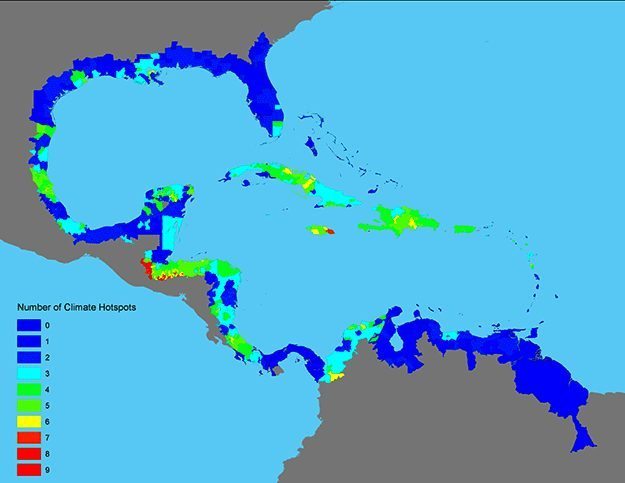
The Caribbean thinks of climate resilience
As time and age advance, and with it one’s private and professional life progresses, one might come to the conclusion that most things we do in life, in business or even in politics are just a bunch of nonsense. What is worse that we keep doing it for no good reason at all, and are continuing to create more nonsense. Some will put the blame on the boss or the government, some on the weather, others on their childhood, their mother-in-law or a recession. Great arguments that underline some of the nonsense even more. Climate change and resilience are trendy right now. It is almost like wanting to blame Nature for what Nature is and how it functions.
I’ve got some news for you. Extremely old news. It may take at least 10 digits to put a number on it. There is scientific evidence that forms of life on Earth appeared about 3.5 billion years ago. One year more or less doesn’t make a difference. There are people who may believe that it is what it took to create true human perfection. Just imagine that it took an evolution that long to inspire some members of the human species to decide on putting together committees to figure climate resilience out. That’s a main topic in the headlines nowadays. Just as a side remark, did you know that French soft cheese takes about 4 weeks to ripen? Anyway, to describe the mission of such committees in some straight forward wording: find out what we recently messed up and how we can quickly fix it again.
The answer is so darn simple that it almost insane: any material or process that was not created or influenced by man, and still exists, has proven to be resilient, in some cases over millions of years. The next question may be, what would have survived or flourished if it wasn’t affected by human action or influence? There you will find some valid answers of what to keep, copy and protect, and what to avoid.
Some prefer looking for an easier solution, like we need more insurance and more financial assistance, or handouts to survive when catastrophes happen. The correct answer is again so senseless simple. One is provided with two features for the use: brains and hands. As for the hands, we all know that some hands are bigger than others, and that some are used to do work, and some are used to be held up and receive. As for the brain sizes and functions, let’s not even get started discussing it. The answers to problems are usually quite simple and straight forward. But in order for them to be recognized and accepted, human brains and behavior have an annoying delaying effect.
In 1997, I was asked by the Intergovernmental Oceanographic Commission of UNESCO to promote “1998, The International Year of The Oceans of the UN”. The mission was to create awareness for the world’s oceans. At that time, climate change was already discussed. Scientists had recognized all the indications. They had computer models of the effects of rising sea levels. Why wasn’t something done about it already at that time?
For one, scientists typically have to prove things first and beyond any doubt; reasonable doubt is not even good enough. One cannot prove something when it didn’t actually happen. That is like wisdom from the law and order professions. Politicians will not take action unless scientists can prove something. They fear for their credibility and to be fried to a crisp if they cannot justify their decision without proper evidence. Now, after those 20 years, one can at least say that tremendous progress is made, and climate change is about to be proven. The time has now come to think about action for becoming climate resilient. And of course, on a smaller scale, like here in the Caribbean, a committee may be assembled of persons who must start thinking first, about what they actually need to be thinking about. Keep your fingers crossed for #1 seeing a plan of action and #2 enjoy experiencing the implementation.
If I would ask Mother Nature for her opinion about all this, she might respond with: “You people think you are ‘Living the life of Riley’ and you believe you are ‘Hot Stuff’. In my eyes you are really only lallygagging and dilldallying along through your limited time of life. From my overall perspective, you are as unimportant as a miniature ship in a bottle. Mama Nature will adapt and survive. I always did. And you? So, listen to Mama Nature and learn from Mama Nature and don’t try to have things your way.” Ding-dong!
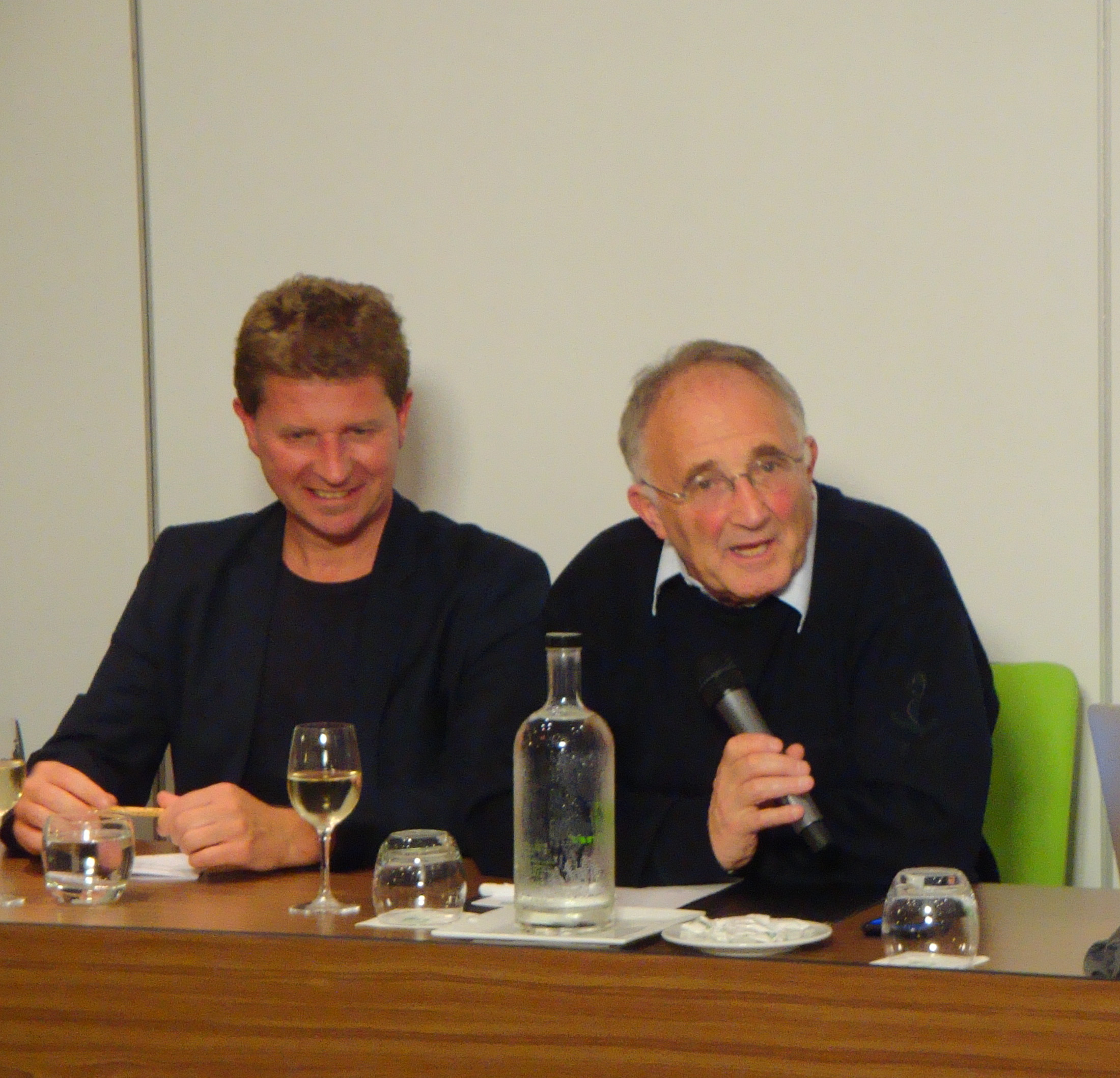
Launch of First Climate Resilience Centre In Belgium’s National Park
To mark the end of the International Year of Sustainable Tourism for Development an MOU has been signed between Regionaal Landschap Kempen en Maasland and SUNx to build a climate learning, innovation and resilience centre in the Hoge Kempen National Park in Limburg, Belgium. The centre will be established at Terhills-Connecterra, the main gateway to the National Park. It will be a proof of concept and focal point for a global network. It will also link with Ecotron, a global science project of the Park and University of Hasselt on climate change and nature-based solutions, as well as the University’s Field Research Centre.
The MOU was signed following a meeting between the Governor of the Province of Limburg, the Rector of Hasselt University, RLKM and SUNx. Leading the partnership are Professor Geoffrey Lipman, SUNx Co-founder, and Ignace Schops, Director RLKM, President of EUROPARC Federation and a Goldman Award winner.
SUNx – Strong Universal Network- is a program of the EU based, not for profit Green Growth and Travelism Institute, and a legacy to the late Maurice Strong – sustainable development pioneer. Its goal is to promote Climate Resilient, Impact-Travel with good & bad effects measured and managed coherently: with Green Growth at the core and, 2050-proof in line with the Paris Accords and the W.E.F. 4th Industrial Revolution. At its heart are SUNx Centres: prefabricated, solar powered climate research and innovation centres for climate resilience learning and capacity building.
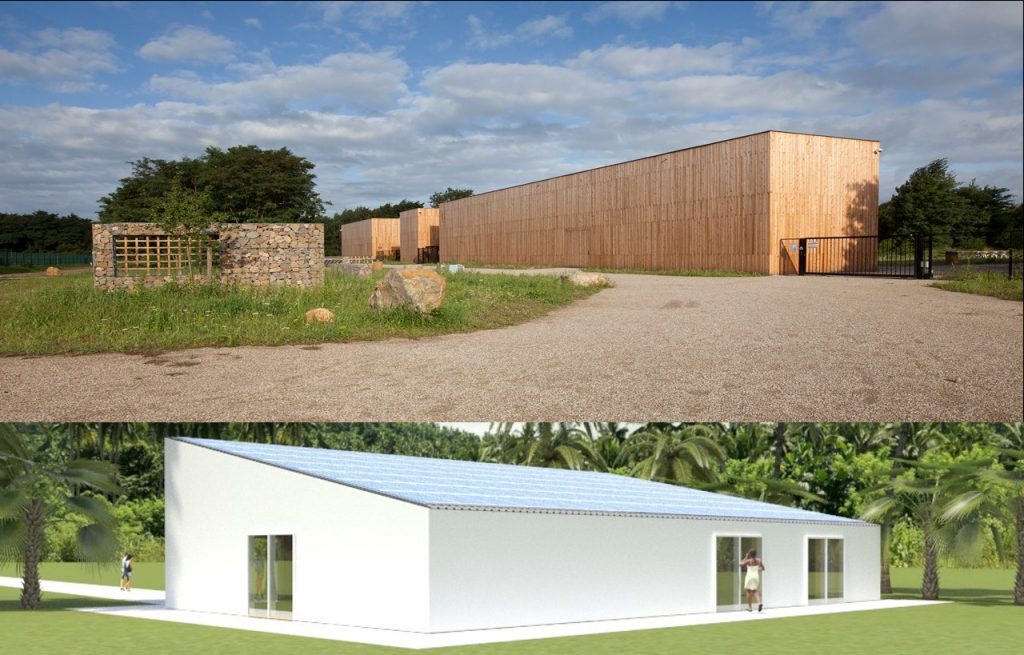
Ignace Schops said:
“We have partnered with SUNx to strengthen our research on climate change, specifically focusing of climate resilience for the wider society and the relation with the Sustainable Development Goals (SDG’s). Hoge Kempen is Belgium’s first and only national park, and protects one of the largest open green spaces in the country. As well as being an important visitor attraction we are also investing in research on climate change and biodiversity protection as we believe that climate change poses the greatest threat to humanity and life on earth.”
Professor Geoffrey Lipman, SUNx Co-founder said:
“We are proud to be working in partnership with RLKM who are leading the way in protecting Belgium’s natural resources and creating a blueprint for sustainable tourism in National Parks. We believe that tourism has the power to be a massive force for change if managed carefully and have developed a system that will be accessible to every community to help climate adaptation. The Limburg Centre is being developed as a model for a global network that will support Travel & Tourism in its journey to align with the Paris Climate targets and relevant Sustainable Development Goals.”
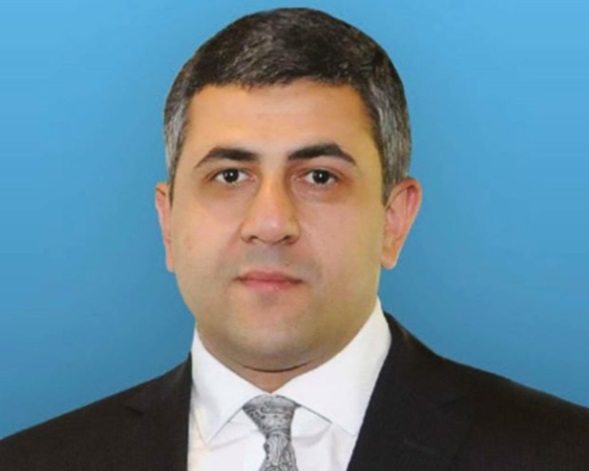
New Year message from new UNWTO Secretary-General, Zurab Pololikashvili
New UNWTO chief, Zurab Pololikashvili, issued the following New Year message – his first, after assuming the post of Secretary-General of the World Tourism Organization for the period of 2018-2021:
Dear all
It is with a sense of pride and humility that I assume my post as Secretary-General of the World Tourism Organization (UNWTO) for the period 2018-2021.
I would like to take this opportunity to share with you my strong commitment to make of UNWTO an ever more relevant Organization for the benefit of the sector, our Member States and its people.
Tourism is a people’s sector. 1 in 10 people in the world are directly or indirectly employed by tourism. Ours is the responsibility to ensure that tourism benefits each and every community, leaving no one behind.
Tourism’s sustained growth generates immense opportunities for economic welfare and development. Yet, it also brings in many challenges. Adapting our sector to the challenges of safety and security, evolving market changes, growing digitalization and the limits of our natural resources should be priorities in our common action.
As we move towards a future guided by the universal 17 Sustainable Development Goals (SDGs), I take upon me to lead UNWTO with a strong focus on building strong partnerships with public and private sector, fostering jobs and opportunities for all, mastering technology and innovation and advancing sustainability and the fight against climate change.
I trust that, together with our Member States and our partners from around the world, we can build a more competitive and responsible tourism sector for the benefit of all people.
I wish you a very happy 2018.
UNWTO Secretary-General
Zurab Pololikashvili
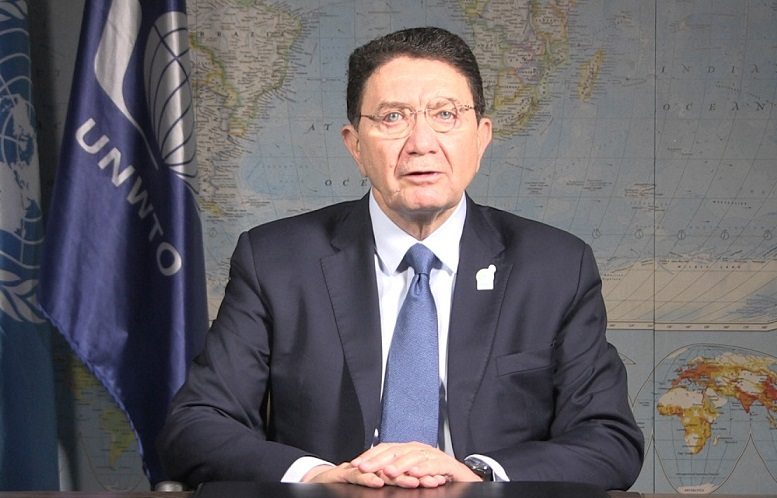
Taleb Rifai’s final words as UNWTO Secretary General: Make this world a better place
Not only the Legacy of the International Year of Sustainable Tourism is coming to an end, but also the term of UNWTO Secretary General Dr. Taleb Rifai.
Dr. Rifai has changed the UNWTO and what it is during his term and many say, he had raised the bar of the UN agency very high and has built a legacy for himself like none of his predecessors did. In his final speech he addressed not his legacy, but the legacy of the International Year of Sustainable Tourism for Development. This is just his humbled style of communication. This is Mr. Rifai’s final address as a UNWTO Secretary-General:
Dear Friends,
We have come to the end of a very special year for UNWTO and for the global tourism community.
In late 2015, the United Nations General Assembly declared 2017 as the ‘International Year of Sustainable Tourism for Development’. This was, without doubt, a global recognition of tourism as an important contributor to the development agenda through economic growth, social inclusion, as well as cultural and environmental enrichment and preservation.
UNWTO was designated by the UN General Assembly to coordinate the activities and the celebrations of the International Year. With your support and the great support of our partners, we have promoted the value and contribution of sustainable tourism to development, to inclusive economic growth, social empowerment cultural and environmental enrichment and protection as well as mutual understanding, peace and justice. This was in many ways a once-in-a-lifetime opportunity to come together and work closer in making travel and tourism a catalyst for positive change.
The launch of the Measuring Sustainable Tourism last June in the Philippines, the adoption by Members States during the Chengdu General Assembly of the ‘Tourism and Sustainable Development Goals’ Declaration, the Montego Bay Declaration and the Lusaka Declaration, our 14 official events held in all regions of the world, our first consumer campaign – ‘Travel.Enjoy.Respect’ and our online space for sharing stories, knowledge and actions which gathered over 1000 initiatives, were just some of the initiatives of this Year. All my thanks go to each and every one of the 65 partners who joined us in making this possible as well as the 12 Special Ambassadors for the International Year.
Dear Friends,
This International Year will not end in December 2017. All the work we have done together during this year needs to be sustained and expanded if we are to ensure tourism’s effective contribution to the 17 SDGs. We were, therefore, very pleased to have been able to launch the findings of the ‘Tourism and SDGs’ report at the Closing Ceremony of the Year in Geneva on 19 December. The Report, which was developed in collaboration with the United Nations Development Program (UNDP), looks into the links between tourism and the SDGs in national policies, in private sector strategies and sets recommendations for our common journey towards 2030.
2017 was also a momentous year for me personally, as it was the last year of my mandate as UNWTO Secretary-General. Over 12 years at UNWTO I have seen tourism become one of the world’s most important and impactful socio-economic transformative forces of our times. I have seen its growing relevance to the lives of millions of people around the world, to the preservation of our common values and to the greater understanding among people of all walks of life.
I have been touched by every person I have met throughout my humbling, rewarding yet challenging journey and deeply moved by many of the tourism stories I have come across around the world.
I want to thank all those who make our work meaningful every day. I also wish to thank all our Member States, Affiliate Members, sister UN Organizations, industry leaders and their teams, associations and global bodies for their support to me and to the mandate of UNWTO throughout these years. It has been a truly humbling experience.
I wish to say a very special thanks to the UNWTO staff that made possible every success that the Organization has enjoyed over the past years. I am extremely grateful to everyone I have worked with. It has been a privilege to serve as Secretary-General, not the least because of the diverse breadth of exceptional colleagues I have had the pleasure of working with.
I wish Mr. Zurab Pololikashvili, the incoming Secretary-General, every success in continuing to drive our sector forward to a better future.
Dear Friends,
Whatever our business in life may be, let us always remember that our core business is, and will always be, to make this world a better place.
Thank you!
Taleb Rifai
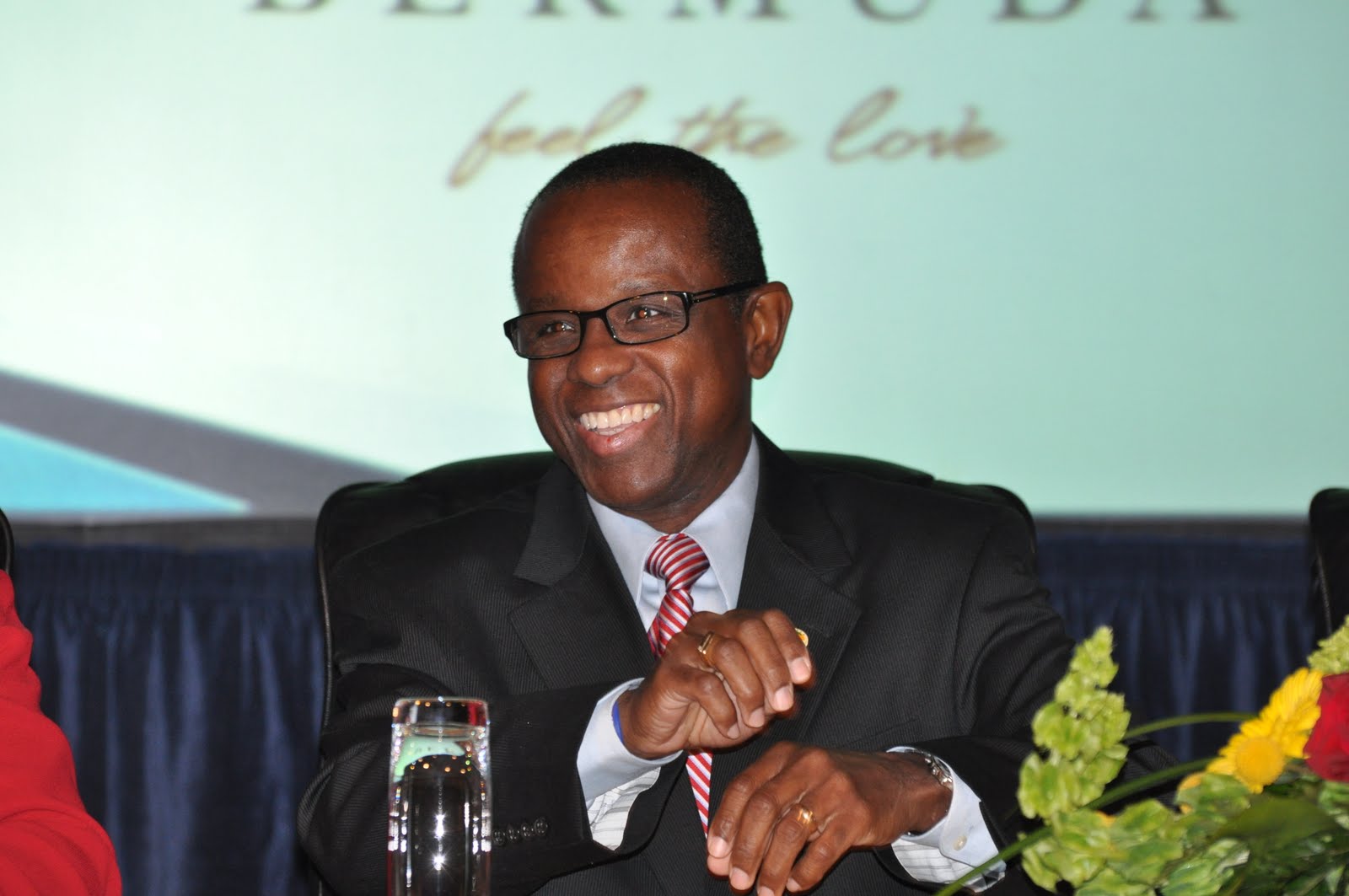
New Year Message from Hugh Riley Secretary General Caribbean Tourism Organization
Bridgetown, Barbados (28 Dec 2017) – This has been a challenging year for Caribbean tourism. While the first half of the year saw exciting growth in both tourism infrastructure and tourist arrivals over the previous year, in September we were hit hard by a series of unusual hurricanes that not only destroyed property, but also took the lives of many of our citizens. We must never forget the souls we lost along the way.
Physically, we will recover. Our Caribbean people are a resilient population. We will put the bricks and mortar back together and the hotels and vegetation will rise again and shine in the brilliant sunlight.
We take this time, a season of celebration and joy and the promise of a new beginning, to both reflect on the preceding year and look forward to tomorrow. And we will take the time to give thanks.
Travellers coming to the countries that were impacted by the storms will now see various stages of the rebuild/recover effort. Some are already fully up to speed and ready for the winter; others, only partially so. Our affected islands respect the safety and security of guests and staff and are therefore being frank and open about their state of readiness.
As tourism is the main economic driver for most of the Caribbean, we place enormous emphasis on delivering value and a superb visitor experience. In the hurricane-affected islands guests in 2018 and beyond will expect to see a product that is rebuilt stronger, better and even more attractive than before. That’s the plan, however long it takes to deliver.
We are thankful that the vast majority of the Caribbean never got touched by the hurricanes, so those islands have continued to welcome visitors every day. For them it’s business as usual. We are grateful to the travel professionals, the many visitors and our citizens themselves who continue to share images of the Caribbean today. Those pictures tell a thousand realities.
We want to use this time to thank our member countries that were quick to come to the aid of others not so fortunate. We want to thank our partners, the Caribbean Hotel & Tourism Association, the airlines, cruise lines and the hotels across the region that have worked and are still working to bring the Caribbean back to normal operations. We want to thank our marketing and sales partners, the tour operators, wholesalers and travel agents from around the world who have stood by the region and continue to promote and sell our destinations. And we want to thank the media that have, for the most part, painted a proper picture of our region that is clearly open for business. Through it all, we are also eternally grateful to our visitors and to the Caribbean Diaspora who stand shoulder to shoulder with our region in times of need.
Even as we prepare to greet a New Year let us take a moment to look back on a few of the successes of 2017.
Recently we embarked on a strategy to substantially enhance the Caribbean’s engagement in Canada, to develop business in non-traditional areas and work closely with our members’ representatives for maximum impact. New travel agent training and certification, increased use of targeted social media, enhanced deployment of the CTO’s data analysis tools, and more focused engagement with the Caribbean Diaspora were all components of the 2017 strategy for Canada. The Canadian market was a strong performer for most of 2017, with arrivals up by 6.4 percent. We can now look forward to more expansion of that market in 2018.
We also continued to focus on our two primary markets, the United States and Europe, with the UK, in particular, taking a central role. These markets were more robust in 2017 and we trust this will continue in 2018.
We realized too, that intra-Caribbean tourism, which has also been on the rise, would need our continuous attention, especially under the current circumstances where the task of educating the travelling public and removing the barriers to intra-Caribbean travel will continue to be a challenge.
At the start of the year we declared 2017 the Year of Adventure in the Caribbean and we capitalized on this in multiple promotions with member countries and industry partners. The Caribbean Year of Adventure linked directly with the United Nations Year of Sustainable Tourism for Development and allowed us to pair adventure with sustainability.
The year culminated with the World Tourism Organization holding its Global Conference on Jobs and Inclusive Growth, in Jamaica, followed by the CTO’s partnership with the Caribbean Development Bank to host the Climate Smart Sustainable Tourism Forum in St. Kitts.
For the New Year the CTO has declared 2018 The Year of Rejuvenation in the Caribbean. With wellness and rejuvenation being important aspects of the Caribbean tourism product, we are encouraging our member countries and private sector partners to plan and organise events and activities around that theme.
For travellers who focus on renewing body and spirit, the options are virtually endless; from beachfront workouts and yoga retreats, to wellness resorts and spa treatments, the notion of being rejuvenated in the Caribbean is one more reason to let us pamper you in 2018.
The 2018 Caribbean Year of Rejuvenation will be promoted through social media and traditional media channels and will create opportunities for locals, travellers and holiday/vacation planners to share their ideas on how to capture the Caribbean’s huge capacity for wellness and rejuvenation. It will be a time of rebirth for us and for those who come to share the joy of a Caribbean vacation experience.
We look forward to 2018 with optimism and excitement.
On behalf of our CTO Chairman, The Hon. Dionisio D’Aguilar, Bahamas Minister of Tourism, the CTO Council of Ministers and Commissioners of Tourism, the Board of Directors, Members and Staff of the CTO, I thank you for your continued support of our region, and I wish you and yours a safe, peaceful and prosperous New Year.
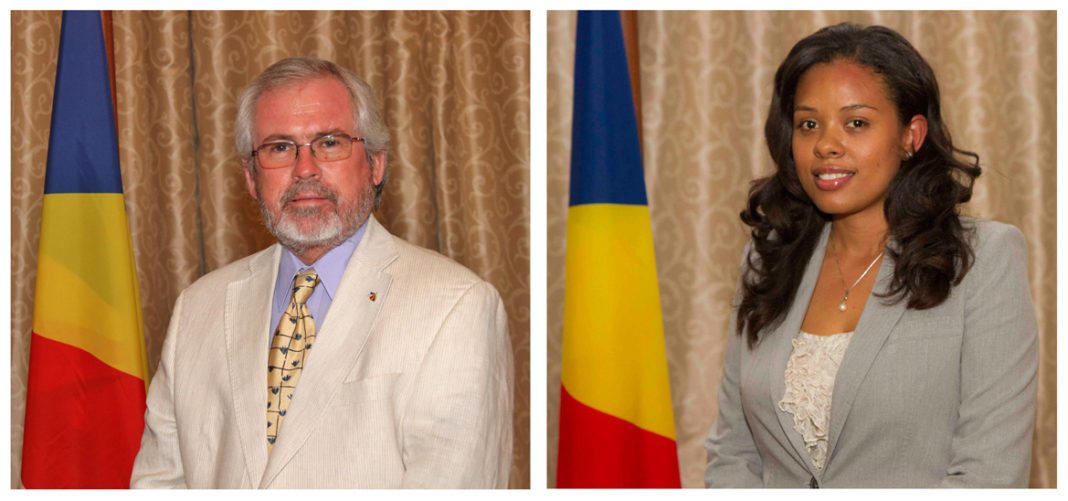
Seychelles Partners with SUNx to Build Regional Climate Resilience Centre
Speaking in Victoria, Seychelles, at the Conference on Sustainable Tourism in Small Island Developing States (SIDS), Maurice Loustau-Lalanne, Seychelles Minister of Tourism, Civil Aviation, Ports & Marine announced a partnership with SUNx to build a climate resilience centre for the Seychelles and Vanilla Islands.
He also made provision for Maurice Strong Legacy Scholarships, formally launched at this year’s World Travel Market in London and of special interest to the Seychelles because they provide access to a high-profile scholarship for outstanding Seychellois students to further their education in Sustainable Tourism. The long-term aim is to empower tens of thousands of likeminded, connected, committed, graduate trainees and lifetime learners for progressive change.
SUNx is a program of the EU based, not for profit Green Growth and Travelism Institute, and a legacy to the late Maurice Strong – sustainable development pioneer. Its goal is to promote Climate Resilient, Impact-Travel with good & bad effects measured and managed coherently: with Green Growth at the core and, 2050-proof in line with the Paris Accords and the W.E.F. 4th Industrial Revolution. At its heart are SUNx Centres: prefabricated, solar powered climate research and innovation centres for climate resilience learning and capacity building.
Minister Loustau-Lalanne said:
“We believe that this centre will become a valuable focal point for subsequent research and action to link issues like coastal protection, greenhouse gas reduction and Impact-Travel, with access to world class experts in encouraging long-term Green Growth and Travelism as well as Tourism and Natural Capital Assessment.”
Professor Geoffrey Lipman, SUNx Co-founder said:
“We are proud to be working in partnership with the Seychelles Ministry of Tourism who are taking a lead in the fight against eXistential climate change. Small Island Developing States, (SIDS), like the Seychelles will feel the effects of climate change first and we applaud the progressive attitude towards developing climate resilience before it’s too late.”
Notes to Editors
The Strong Universal Network SUNx, is a program of the EU based, not for profit Green Growth and Travelism Institute, and a legacy to the late Maurice Strong – Sustainable Development Pioneer.
Its goal is to promote Climate Resilient, Impact-Travel with good & bad effects measured and managed coherently: with Green Growth at the core and, 2050-proof in line with the Paris Accords and the W.E.F. 4th Industrial Revolution.
Seychelles Ministry of Tourism, Civil Aviation, Ports & Marine, is a strategy focussed Tourism Ministry, committed to creating a conductive environment for the development and maintenance of an authentic, dynamic and sustainable tourism industry.
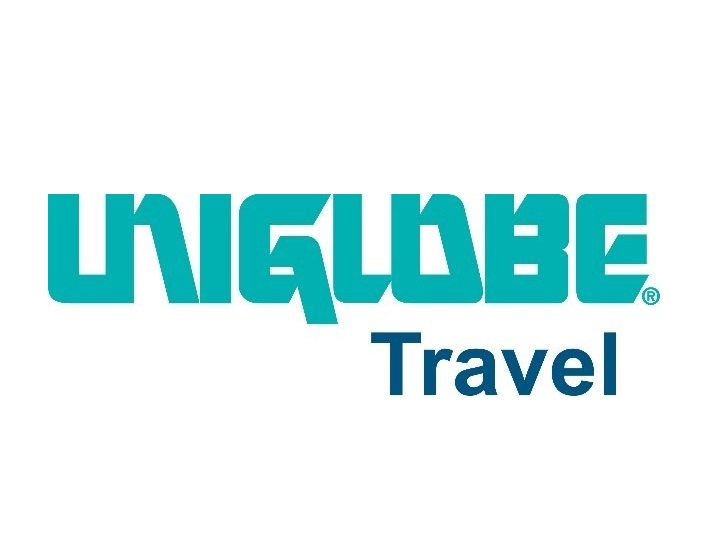
TRAVELCARE joins UNIGLOBE Travel EMEA Agency program
UNIGLOBE Travel International is pleased to welcome TRAVELCARE AGENCIA DE VIAGENS to the UNIGLOBE Travel EMEA Agency Program. TRAVELCARE is headquartered in Porto, Portugal and will support a strategic alliance for the entire UNIGLOBE Network.
Martin Charlwood, President, UNIGLOBE Travel International states “we are very excited for TRAVELCARE to join our global network. They are one of the most reputable travel organizations in Portugal, which is known as a top European destination.” TRAVELCARE has been a 100 % Portuguese company since it was established, in 2010.
The well-trained and motivated professionals at TRAVELCARE provide quality corporate services for a wide portfolio. Some of the industries that TRAVELCARE has expertly serviced include fashion, wine, construction, and automobile. TRAVELCARE offers Destination Management, and has extensive experience in organizing meetings and events. TRAVELCARE has the capacity and the creativity to exceed its customers’ expectations, in both corporate and leisure travel.
Portugal is experience impressive growth in the travel industry with the local government intending to set travel and tourism as a priority until 2027. The focus will be to ensure travel and tourism in Portugal benefits the country economically, environmentally, and socially. UNIGLOBE Travel looks forward to being a part of this new growth.
Working globally to serve clients locally across more than 60 countries. UNIGLOBE Travel leverages current technologies and preferred vendor pricing to save clients time and money on business and vacation travel planning. For more than 35 years, corporate and leisure travelers have depended on the UNIGLOBE brand to deliver services that go beyond expectations. UNIGLOBE Travel International Limited Partnership is headquartered in Vancouver, Canada.
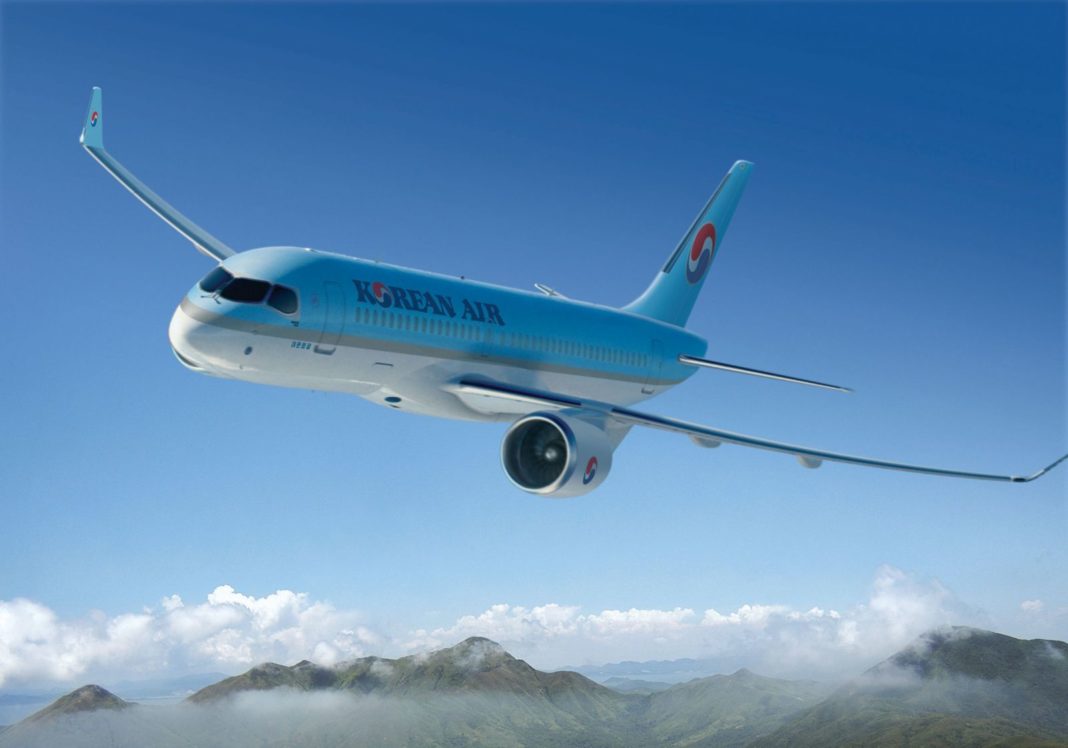
Korean Air receives first Bombardier C Series with Pratt & Whitney GTF engines
Pratt & Whitney, a division of United Technologies Corp. and Korean Air Lines Co., Ltd. celebrated delivery of the airline’s first Bombardier CS300 aircraft powered by Pratt & Whitney’s Geared Turbofan (GTF) engine. Bombardier hosted a delivery ceremony in Mirabel, Canada where both C Series and GTF final assembly take place.
“Today we celebrate delivery of our first GTF-powered C Series aircraft. We are excited for the dramatic improvements in efficiency, emissions, and noise that will enhance our operations and passenger experience,” said Soo-Keun Lee, Chief Technology Officer at Korean Air.
“This is a very important milestone for the C Series program because it is our breakthrough into the fast-growing Asian market, and we are honored to have Korean Air Lines as our brand ambassador in the region,” said Fred Cromer, President, Bombardier Commercial Aircraft. “We expect that over the next 20 years, Asian operators will take delivery of 2,870 small single-aisle aircraft. We are thrilled that Korean Air is the first in the region to showcase the CS300 aircraft’s outstanding performance and capabilities.”
Since entering into service in early 2016, the GTF engine has demonstrated its promised ability to reduce fuel burn by 16 percent to reduce nitrogen oxide emissions by 50 percent to the regulatory standard, and to lower the noise footprint by 75 percent.
“We are thrilled for Korean Air to receive their first CS300 aircraft,” said Rick Deurloo, senior vice president of sales, marketing and customer support at Pratt & Whitney. “Pratt & Whitney has shared a long standing relationship with KAL dating back to the late 1940’s and we look forward to powering their new-generation fleet.”

Indian tourism professionals: New Goods and Services Tax needs to be simplified
Rajendera Kumar, industry veteran, Director, The Ambassador Vivanta by Taj, New Delhi, has welcomed the recent introduction of the Goods and Services Tax (GST), but regretted that the hospitality industry has not been treated fairly.
A former president of the FHRAI (Federation of Hotel and Restaurant Association of India), Kumar says that the tourism industry will suffer because of the high and differential rate for various segments. He quoted the example of Singapore, where seven percent tax is applicable across the board.
Kumar feels that the restaurants in the hotels should have the same GST as the stand alone restaurants, which is five percent. At present, they have to pay higher rate.
Many industry players are finding the working of the GST difficult and would like it to be simplified.
Bhim Singh, managing director, Rajasthan Tours, based in Jaipur, says that he has left the GST to the accountants, as he is unable to understand the intricacies.
